This article was co-authored by Noel Hunter, Psy.D. Dr. Noel Hunter is a Clinical Psychologist based in New York City. She is the director and founder of MindClear Integrative Psychotherapy. She specializes in using a trauma-informed, humanistic approach for treating and advocating for people diagnosed with mental disorders. Dr. Hunter holds a BA in Psychology from the University of South Florida, an MA in Psychology from New York University, and a doctorate in Psychology (Psy.D) from Long Island University. She has been featured in National Geographic, BBC News, CNN, TalkSpace, and Parents magazine. She is also the author of the book Trauma and Madness in Mental Health Services.
There are 8 references cited in this article, which can be found at the bottom of the page.
This article has been viewed 22,151 times.
Receiving a schizophrenia diagnosis is scary for the person affected, as well as those around them. However, this diagnosis and the help that is required with it may not happen unless you step in to help. People who have the illness are often reluctant to get help for a variety of reasons, including having people think they’re “crazy” if they do. Not getting treatment, however, can end in disaster. You can increase the chances of getting your loved one the help they need by understanding the illness, speaking to your loved one, and helping them get treatment.
Steps
Speaking to Your Loved One About Getting Help
-
1Discuss your concerns as a group. Convincing a loved one with schizophrenia to get psychiatric help often requires approaching them about it. You might find it helpful to gather some close friends and family members to talk to the person and try to convince them to get help.
- Choose the appropriate people to join you. Only those your loved one trusts and respects should be present. You might also choose someone who can keep the discussion organized and who can keep everyone calm.
- Everyone can take turns sharing their concerns. For instance, someone might say, "Alice, we love you and care about you. You know that. Your behavior lately has been dangerous to yourself and others. I want you to get some help, so you don't get hurt.
-
2Decide on a different approach, if necessary. If your loved one is paranoid, having a one-on-one discussion may be better and less intimidating. You’ll need to take this into consideration when deciding how to set up the meeting.[1]
- In such a case, you may tell your loved one ahead of time "I really would like to talk to you." Then, you will sit down and express your concerns and ask them to see a doctor.
Advertisement -
3Offer the positives of seeing a doctor. If your loved one is aware of their sickness, they may be willing to seek treatment if you explain that doing so will stop the terrifying symptoms. Point out that seeing a doctor may help to alleviate disturbing thoughts and hallucinations.
- Additionally, allowing your loved one to help pick out the doctor may also make them feel like they have some sort of input in the situation, which may make them more willing to go.[2]
-
4Use the proper tone and technique when approaching your loved one. During your discussion, avoid using threatening or confrontational tones. Even people who don’t have schizophrenia wouldn’t appreciate being spoken to in this manner, and those with schizophrenia who are already dealing with feelings of paranoia and are experiencing delusions will not respond well to this type of interaction.[3]
- Remember to tell your loved one how much you love them and how you want to give support. This will increase the chances of a positive reaction. Say something like, “I know all of this is confusing, but I am here for you. I’ll be happy to attend doctor visits and offer any help you need.”[4]
Finding the Support They Need
-
1Keep a journal of the person’s symptoms and behavior. Write down all of the reasons you think your loved one has schizophrenia.[5] Then, each day, write down the person’s behavior. Give detailed accounts of what has happened and take the journal to the psychiatrist. Doing so gives the doctor a clearer and more accurate picture of what is going on at home.
- Try to keep your emotions and personal reflections out of the journal. Simply stick to the basics of what happened, as this type of account will offer more help to the psychiatrist and your loved one.[6]
-
2Take charge in your loved one’s health care, if necessary. Far too often, those with this sickness stop caring for themselves and often end up on the streets or in jail. They become so consumed by the disease that they are unable to care for their basic needs and often end up in serious trouble. Ideally, you want to encourage the person to live as independently as possible, but you may need to help them out according to their needs.[7]
- If you feel this person needs additional assistance with completing normal daily living skills or tasks, connect them with case management services. This will help the person to get frequent therapy visits for ongoing counseling, psychiatric psychotherapy, and proper medication prescriptions and monitoring. They will also be connected to a qualified social worker who would be able to make weekly house visits.
-
3Learn how to respond to a crisis. People with schizophrenia are prone to experiencing psychotic episodes. Knowing how to react in this type of situation can help to keep you and them safe. Have the psychiatrist’s number on-hand at all times, and learn how to respond to the person with care.[8]
- For instance, stay calm and speak in a low and quiet voice. Sit down and ask the person to also sit down. Do not shout, do not get upset, and avoid continuous direct eye contact.
- Understand that you cannot reason with psychosis and try to avoid getting frustrated with the person. Also remember that the person may be terrified of what is going on.[9] If there is a crisis and the person is in a state of psychosis, and you feel that he/she may be of harm to themselves or others, call emergency services, such as by dialing 911, right away.
Understanding the Illness
-
1Realize your loved one may not believe they are sick. Almost half of the people who suffer from schizophrenia don’t realize they have a problem. This is because the part of the brain that is damaged by schizophrenia is the same part that is used for self-analysis. So instead of thinking that the person is in denial, understand that they simply are unable to realize that they are acting differently.[10]
-
2Learn the symptoms. Schizophrenia is a complicated and scary disease, and often comes with terrifying symptoms. Those with the disease may experience hallucinations, increasing paranoia, and insomnia.[11] You may also notice a decline in personal hygiene, strange disappearances, and changes in speech. Instead of confronting your loved one in an accusatory way about their changes, instead, realize they could have schizophrenia or another medical condition and offer help.
- Keep in mind that these symptoms may not always indicate that the person has schizophrenia. There are a variety of conditions that may cause similar symptoms.
- If your loved one is already on medication, these symptoms may return if they are experiencing a relapse. In this case, contact the doctor immediately. [12]
-
3Know that schizophrenia doesn’t have to define them. Realizing your loved one has schizophrenia is often heart-breaking, but the truth is, they can get better. With the help of medication and therapy, they can become the person they were before, or at least a close version of it. Don’t let stigmas about mental illness prevent you from helping your loved one. They are still themselves, they are just sick and need your help to get better right now.[13]
References
- ↑ https://www.nami.org/Blogs/NAMI-Blog/June-2019/Psychosis-Responding-to-a-Loved-One-in-the-Face-of-Uncertainty
- ↑ http://www.helpguide.org/articles/schizophrenia/helping-a-person-with-schizophrenia.htm
- ↑ Noel Hunter, Psy.D. Clinical Psychologist. Expert Interview. 18 December 2020.
- ↑ https://www.mind.org.uk/information-support/guides-to-support-and-services/seeking-help-for-a-mental-health-problem/helping-someone-else-seek-help/#WhatIfTheyBelieveThingsThatSeemVeryUnusualOrScaryToMe
- ↑ Mental Health America. Non-Profit Organization. Expert Interview.
- ↑ https://www.nami.org/Blogs/NAMI-Blog/May-2015/How-to-Support-a-Loved-One-s-Mental-Health
- ↑ Noel Hunter, Psy.D. Clinical Psychologist. Expert Interview. 18 December 2020.
- ↑ Noel Hunter, Psy.D. Clinical Psychologist. Expert Interview. 18 December 2020.
- ↑ http://www.helpguide.org/articles/schizophrenia/helping-a-person-with-schizophrenia.htm
- ↑ https://www.nimh.nih.gov/health/topics/schizophrenia/index.shtml
- ↑ Mental Health America. Non-Profit Organization. Expert Interview.
- ↑ http://www.helpguide.org/articles/schizophrenia/helping-a-person-with-schizophrenia.htm
- ↑ https://www.nami.org/Learn-More/Mental-Health-Conditions/Schizophrenia/Support

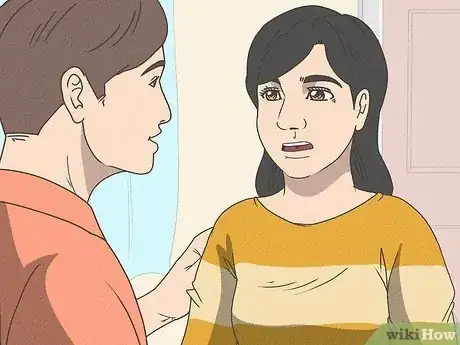
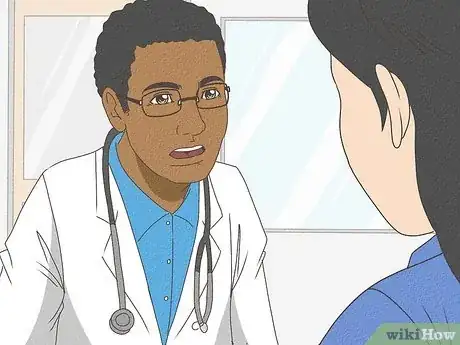


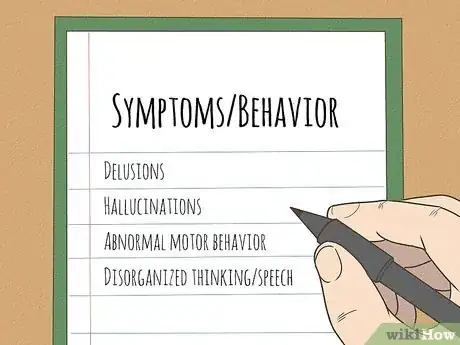

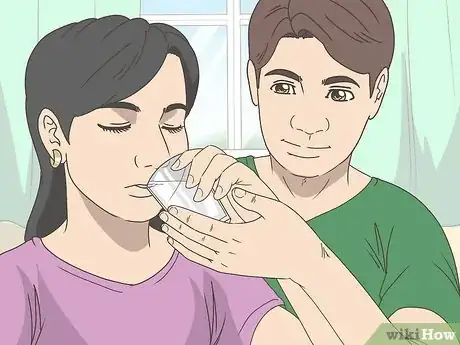
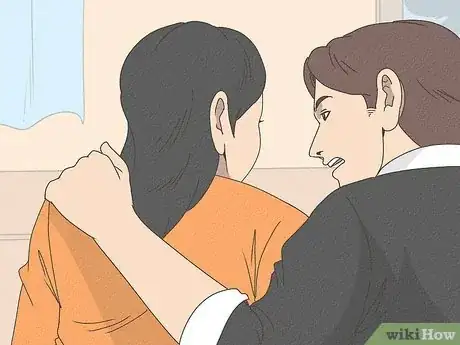
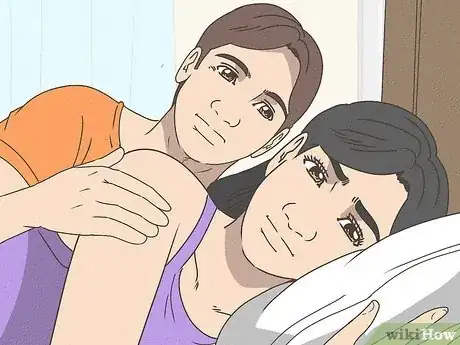
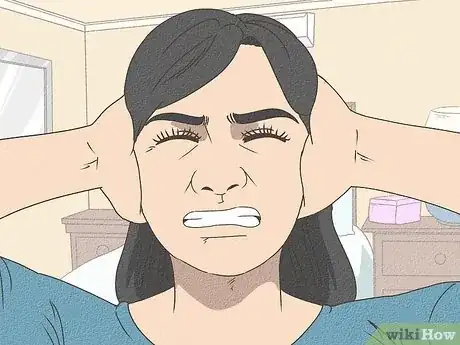



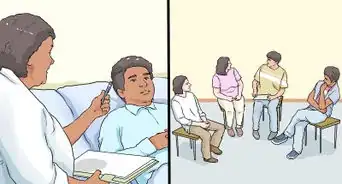
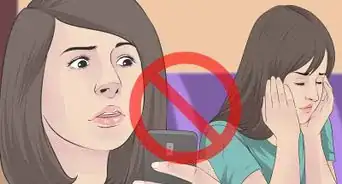
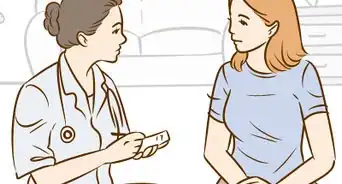














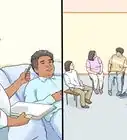
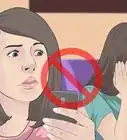



































Medical Disclaimer
The content of this article is not intended to be a substitute for professional medical advice, examination, diagnosis, or treatment. You should always contact your doctor or other qualified healthcare professional before starting, changing, or stopping any kind of health treatment.
Read More...